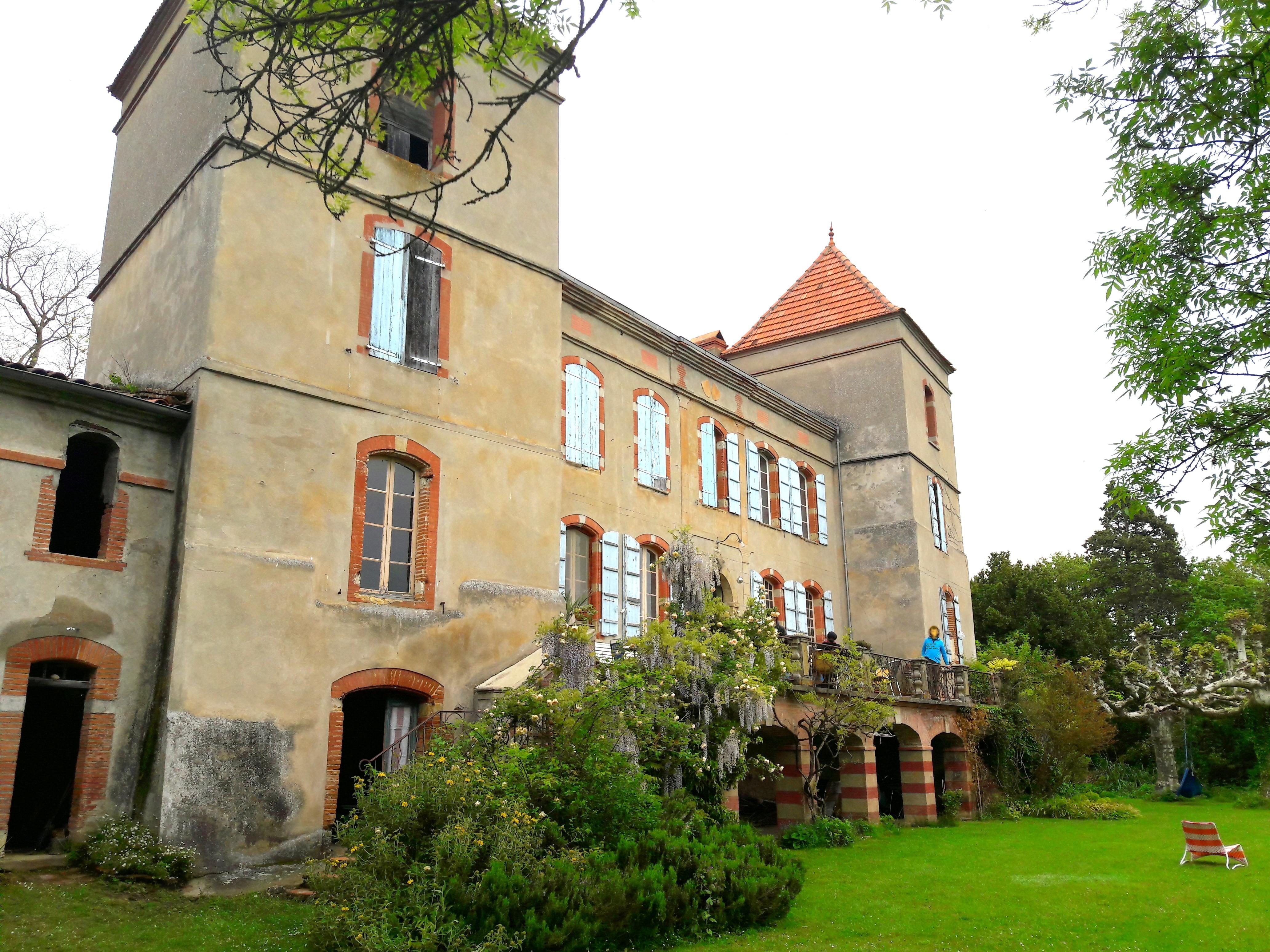Yearly Meeting of the French Federation of Community Networks

Last week, I traveled with my colleague Virginie Aubrée from the University of Trento to Ariège, a rural district one hour south of the city of Toulouse. We arrived at an old castle lent to a joyous crowd of geeks and activists who had come here for the General Assembly of Fédération FDN (FFDN), the French federation of Community Networks (CNs).
In this great environment – with stunning views over the hills at the footsteps of the Pyrenees –, about 70 participants had come to recount the successes and failures of the CN organizations taking part in the federation (see Deliverable 1.2), work on existing projects, start new working groups and discuss the governance of this federation uniting about 30 non-profit organizations, and gathering about 3000 members in total.
Regarding governance, one key focus this year was on inclusion, with the goal of making FFDN's member organizations more welcoming for women, non-whites and disabled persons. As underlined in another report netCommons released last year on governance, this has been long-running concern at FFDN and this year, participants decided to launch a new working group to tackle these structural challenges. Another focus of the discussions on governance was how to fund the growing joint actions taking place within the federation, and how to build financial solidarity between member organizations. One challenge in this regard is to account for the diversity of financial situations among them while preserving local autonomy and equal representation at the federal level. On last point on governance: We witnessed a growing willingness on the part of many participants to start focusing again on growing existing organizations and seeding new ones across France. Founded in 2011, FFDN indeed underwent a fast-paced growth at the beginning and then capped at about 30 member organizations. But time now seems ripe to expand the initiative. A working group has been set up to start developing a new strategy to that effect.
On the technical front, the three-day event was extremely fruitful as well. On the first day, a small team worked on sharing the castle's WiFi network with a circus troop established down the hill and deprived of any Internet access. To that end, the castle's own WiFi network – connected to an ADSL access in a nearby village through a radio link – was expanded thanks to a new antenna installed on the castle's roof. Other workshops focused on starting new development efforts of the “Internet Cube”, a device allowing for self-hosting functionalities (thanks to the Yunohost operating system) and channeling Internet traffic to a CN's VPN services. We also took part in a demonstration on fiber optic soldering.
Finally (and most importantly for us), we had many fruitful interactions on the legal front. We gave an update of our work on legal guidelines for data retention obligations and data protection. Several participants gave us very positive feedbacks on our guide on legal aspects of open access points (based on French law), and in particular the fact that the guide was already helping local public authorities and libraries resist pressure to implement illegal surveillance measures and better protect the rights of Internet users. We also discussed the findings of our recent report on how to develop advocacy capacities to influence regulation in the interest of CNs. As we stressed in that report:
"Building internal skills might be enough to engage in policy-making in front of local authorities, which of course can be key in providing CNs with the legitimacy and resources to scale up their projects locally. But at the national and European level, effectively engaging in sustained political advocacy will require creating better coordination between communities."
Now, the federation's General Assembly was very receptive to the idea and we are expecting new proposals and initiatives on how best to coordinate European networks in the coming weeks or months.
Once again, we are coming back from this event extremely motivated to ensure that the last months of the netCommons project can deliver useful research and tools for the sustainability of these grassroots initiatives. And, also, convinced that, thanks to them – as was overheard during the event –, it is possible to “make the Internet great again!”


